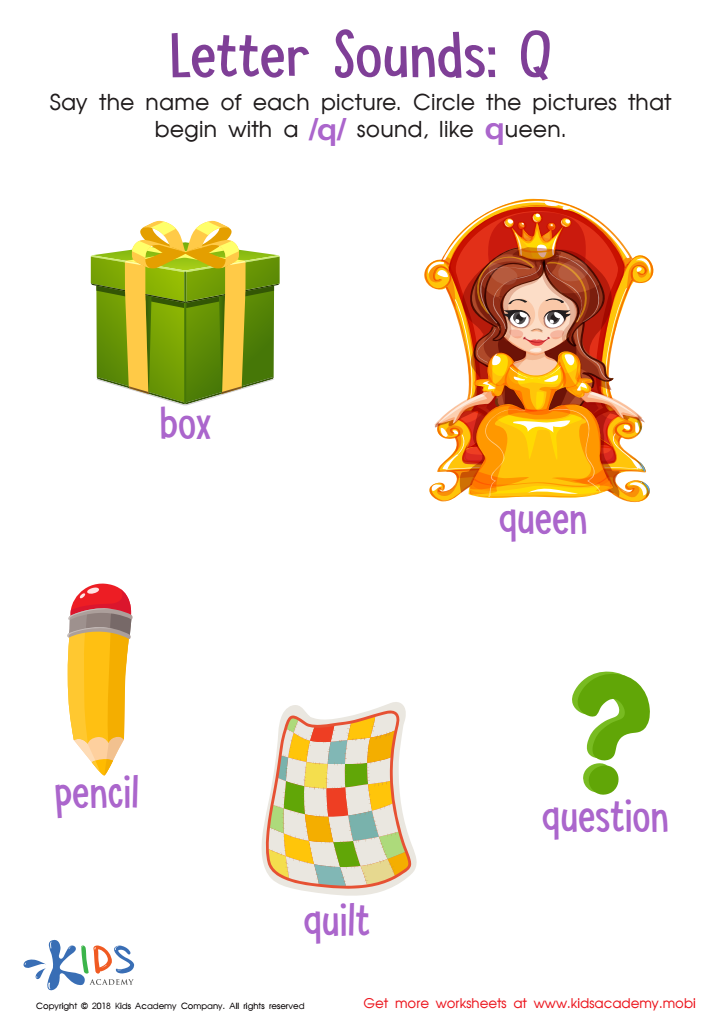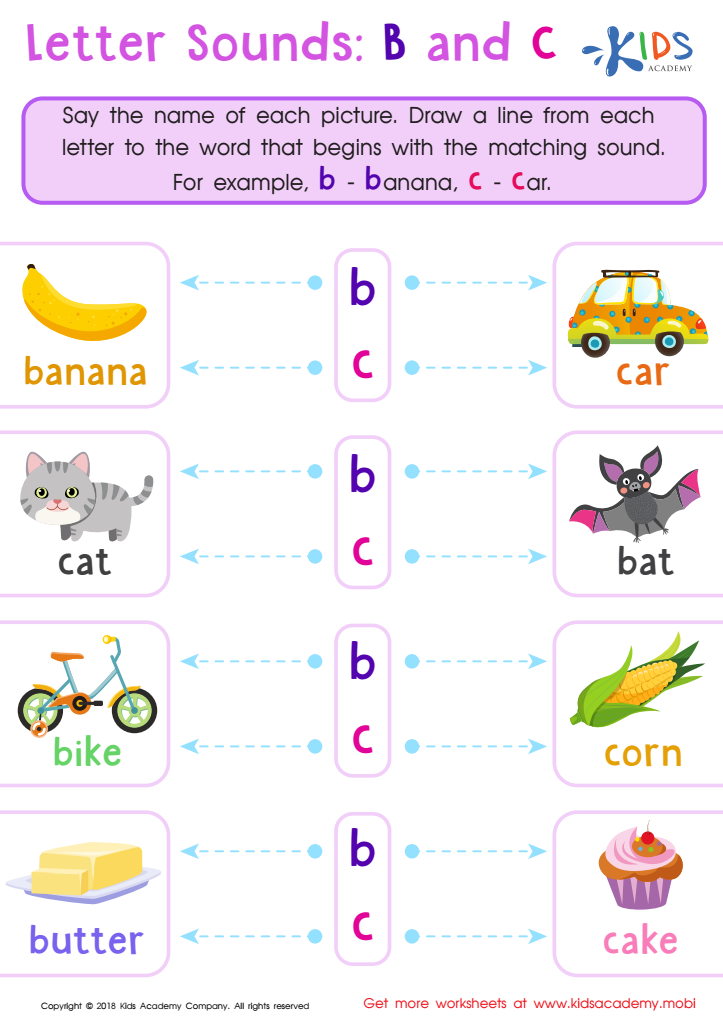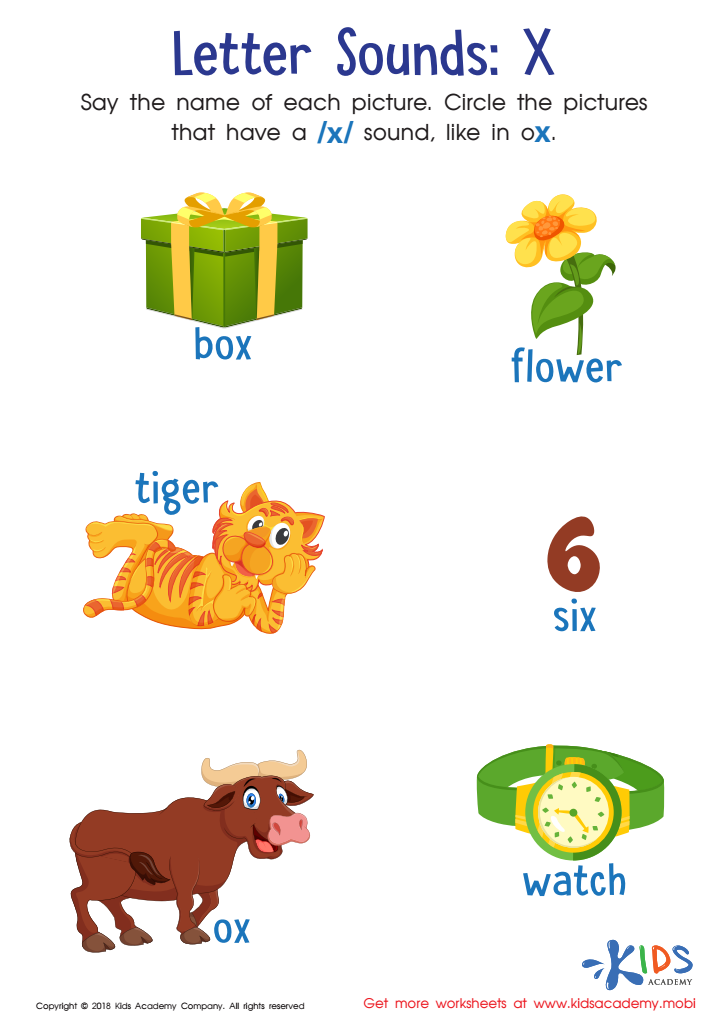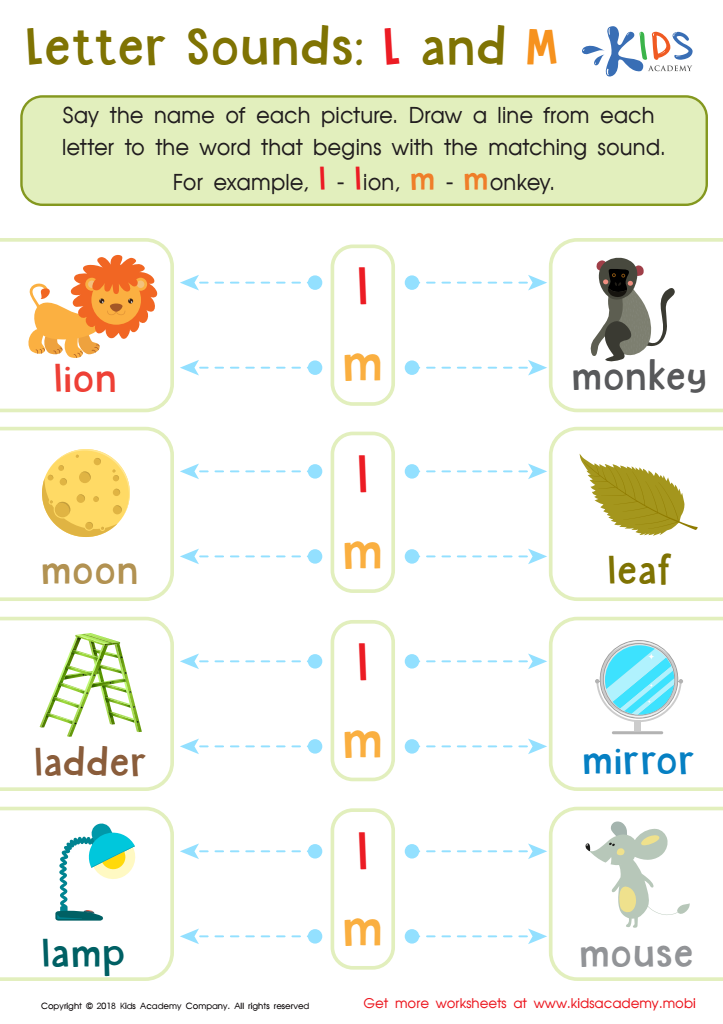Phonics Skills Normal Letter Sounds Worksheets for 5-Year-Olds
4 filtered results
-
From - To
Phonics Skills Normal Letter Sounds Worksheets for 5-Year-Olds take your child's reading abilities to new heights! Designed to ignite early literacy, these engaging worksheets focus on essential phonetic sounds, helping young learners connect letters with corresponding sounds. Through fun exercises, colorful illustrations, and interactive activities, your child will develop a strong foundation in reading and phonics. Perfect for home or classroom use, these worksheets are crafted to make learning enjoyable and effective. Give your 5-year-old the advantage they deserve with these expertly designed phonics worksheets, ensuring a smooth and successful journey into the world of reading.


Letter Q Sounds Worksheet


Letter B and C Sounds Worksheet


Letter X Sounds Worksheet


Letter l and M Sounds Worksheet
Phonics skills and understanding normal letter sounds are fundamental building blocks in learning to read, crucial especially for 5-year-olds. At this developmental stage, children are decoding symbols and matching them to sounds, an essential step for reading fluently. Phonics instruction provides systematic techniques that help children discern the relationship between letters and their corresponding sounds.
Parents and teachers should prioritize phonics skills because they lay the groundwork for children’s literacy. Mastering letter sounds enables children to start “sounding out” words, facilitating easier recognition and retention of vocabulary. This process underpins their ability to read independently and enhances comprehension, making reading experiences more enjoyable and fruitful. Strong phonics skills also contribute to better spelling and writing abilities.
Without a firm grasp of phonics and typical letter sounds, children may struggle with reading, which can lead to academic challenges and hinder their confidence. Early struggles with reading often ripple through to difficulties in other subjects, as reading is integral to learning overall. Thus, focusing on phonics for 5-year-olds not only aids in their reading development but also ensures a robust foundation for all future academic pursuits, fostering a positive attitude towards learning and sharpening cognitive skills.
 Assign to My Students
Assign to My Students


















